
On Monday Cecilia Lalander from the group held her docent lecture. If you for some reason could participate, don’t fret, you can watch it here : (https://www.dropbox.com/l/scl/AAAWVntwTqW6cYrYRn7BiWOLRRUQPwfXKfY, start at 02:00 h).

Blog from the Environmental Engineering Research Group at SLU


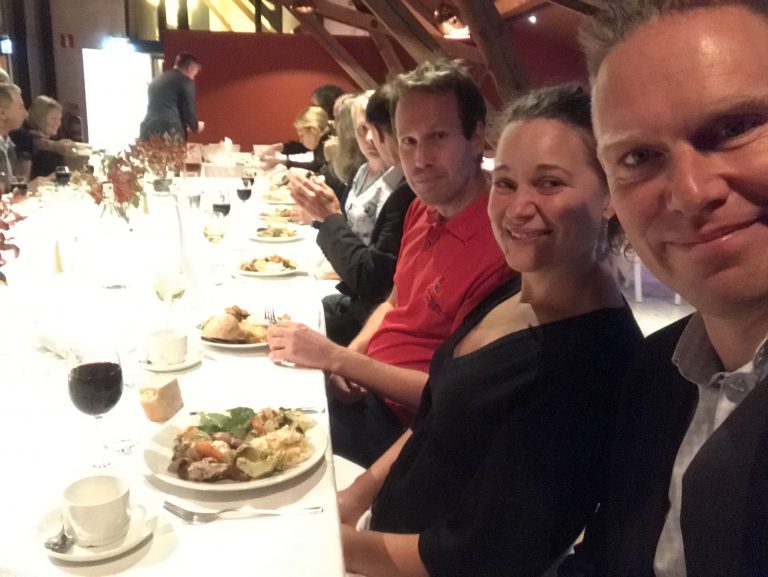
On Monday Cecilia Lalander from the group held her docent lecture. If you for some reason could participate, don’t fret, you can watch it here : (https://www.dropbox.com/l/scl/AAAWVntwTqW6cYrYRn7BiWOLRRUQPwfXKfY, start at 02:00 h).
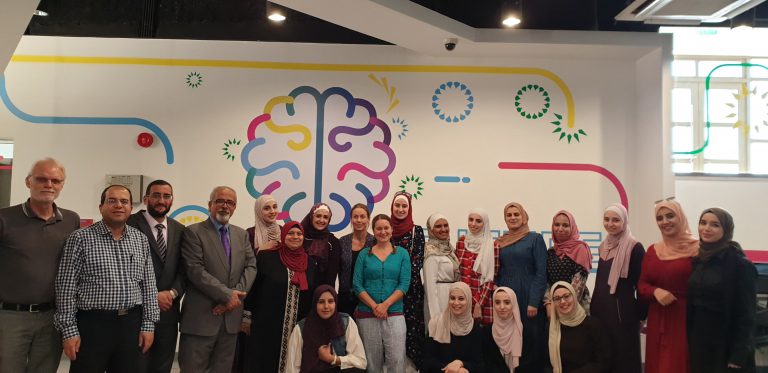
Vi var på Hashemite universitetet i Jordanien förra veckan och undervisade en grupp unga studenter hur vi säkert kan återvinna olika hushållsavfallsfraktioner. Som en del av denna veckolånga kurs organiserade vi en dag med interaktiva seminarier och ett rollspel för att öka medvetenheten bland eleverna om psykologi, beslutsfattande och socio-tekniska aspekter av återvinning av avfall.

We were at the Hashemite University in Jordan last week, teaching a group of young students how we can safely recycle different household waste fractions. As part of this week-long course, we organised a day of interactive seminars and a role playing game to improve awareness among the students about the psychology, decision making, and socio-technical aspects of recycling waste.

Hej, mitt namn är Robert Almqvist och jag skriver mitt examensarbete i Biologi på institutionen för energi och teknik. Jag är inskriven mark/växt-agronom på SLU Uppsala sedan 2014. I mitt examensarbete kommer jag att titta på fluglarvskompostering och den potentiella effekt olika förbehandlingar har på aminosyrasammansättningen i larverna samt nedbrytning av lignin/cellulosa/hemicellulosa i substraten, som i detta fall är banan- och apelsinskal.

Hi, my name is Robert Almqvist and I am writing my master thesis in Biology at the institution of energy and technology. I am a soil/plant-agricultural program student matriculated at SLU Uppsala since 2014. In my master thesis, I will look at fly larvae composting and at the possible effect different pre-treatments has on amino acid content of the larvae as well as the degrading of lignin/cellulose/hemicellulose in the substrates, the substrates being banana- and orange peels in this experiment.
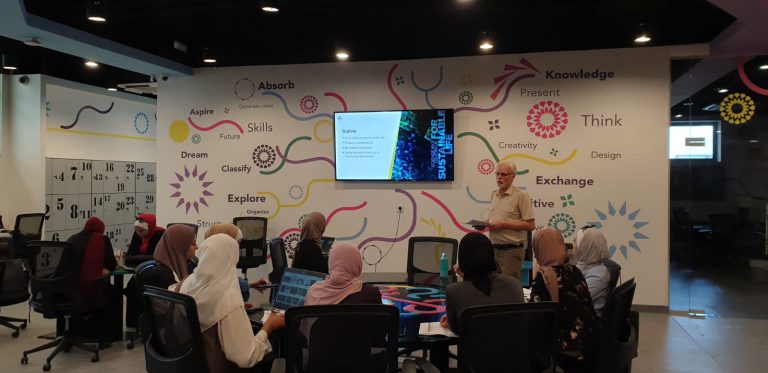
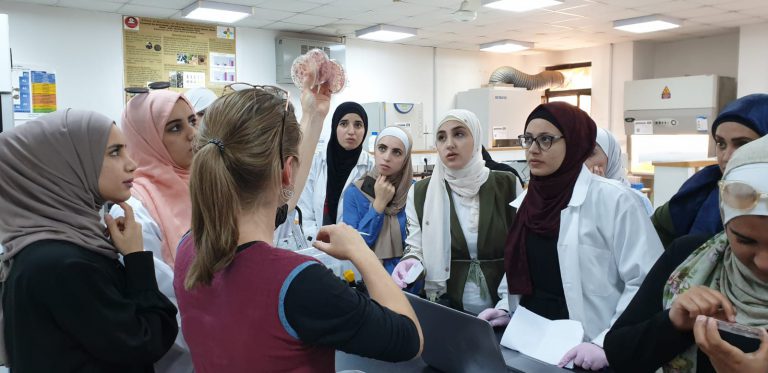
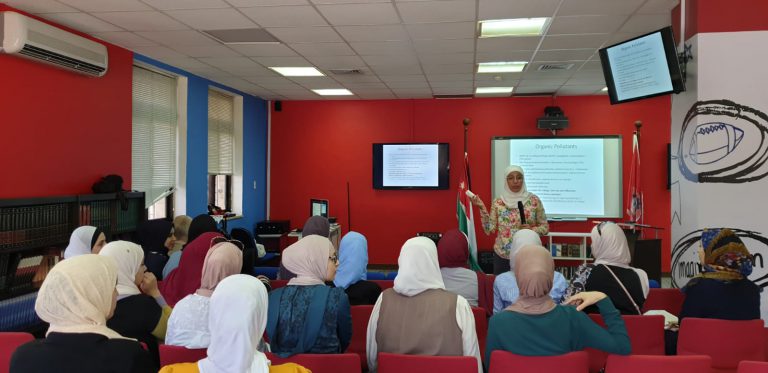
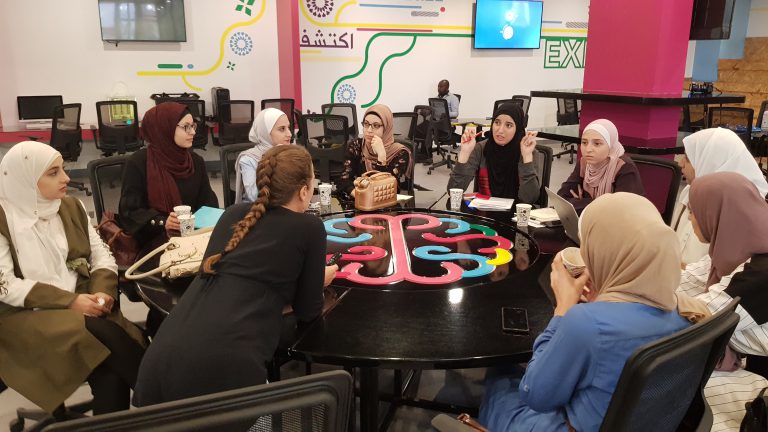
Den här veckan är vi (Sahar Dalahmeh, Mikael Pell, Annika Nordin, Cecilia Lalander, and Prithvi Simha) i Jordanien och håller en 1-veckas kurs om återvinning av olika hushållsavfallsfraktioner. Kursen ges vid Hashemite universitetet, som ligger cirka 50 km från huvudstaden Amman. En grupp på cirka 20 väldigt entusiastiska och nyfikna studenter lär sig olika ämnen som mikrobiologi för avloppsvatten, hygienisering, urinledning och urinsortering, mask- och amerikansk vapenfluglarvskompostering, behandling av avloppsvatten osv.




This week, we (Sahar Dalahmeh, Mikael Pell, Annika Nordin, Cecilia Lalander, and Prithvi Simha) are in Jordan, conducting a 1-week course on recycling of various household waste fractions. The course is given at the Hashemite University, located about 50 km away from the capital city Amman. A group of about 20 very enthusiastic and inquistive students are learning about various topics such as wastewater microbiology, hygienisation, urine diversion and dehydration, vermi- and black soldier fly composting, on-site wastweater treatment, etc.
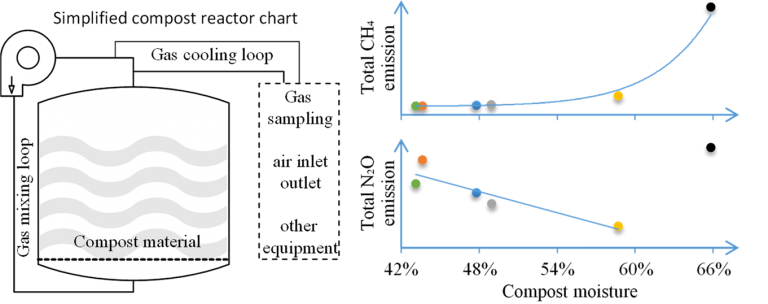
Effekterna av fukt på termofil komposteringsprocess undersöks i den senaste artikeln som publicerades i Journal of Cleaner Production: https://doi.org/10.1016/j.jclepro.2019.118165
Det är känt att alltför våta aktiva komposter kan orsaka överdrivet utsläpp av metan (CH4), men det finns ingen enighet om hur snabbt utsläppen förändras med förändring i kompostens fukthalt.
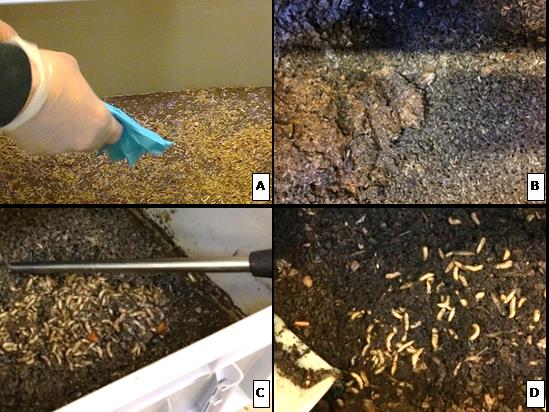
En studie “Modellval för avfallsomvandlingseffektivitet och energikrav i en pilotanläggning för storskalig fluglarvskompostering” presenterades vid den 60:e internationella konferensen för Scandinavian Simulation Society, SIMS 2019, i Västerås, Sverige.
Studien utvärderade vissa tekniska aspekter som är förknippade med larvtillväxt, ventilations- och torkningskrav i en pilotanläggning där amerikanska vapenfluglarver användes för fluglarvskompostering av segregerat hushållsmatavfall och diskuterade modeller för att beskriva behandlingsprocessen och dess energieffektivitet.
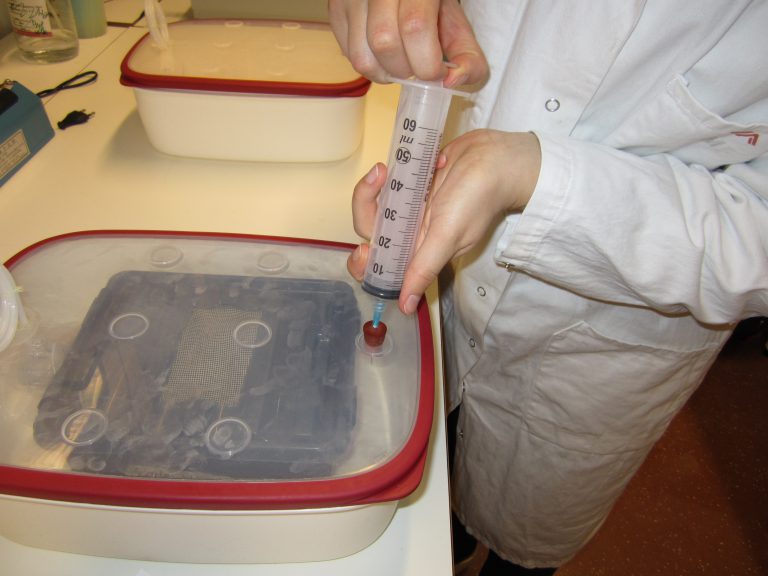
En ny artikel där utsläpp av växthusgaser från småskaliga fluglarvskompostering utvärderas publicerades. Läs hela artikeln här: https://doi.org/10.1016/j.wasman.2019.07.011
Syftet med studien var att utvärdera utsläpp av växthusgaser och ammoniak från flyglarvskomposteringsbehandling av matavfall och effekterna av förbehandling och utsäde av matavfallssubstratet med larvassocierade bakterier på effektiviteten och hastigheten av behandlingsprocessen.